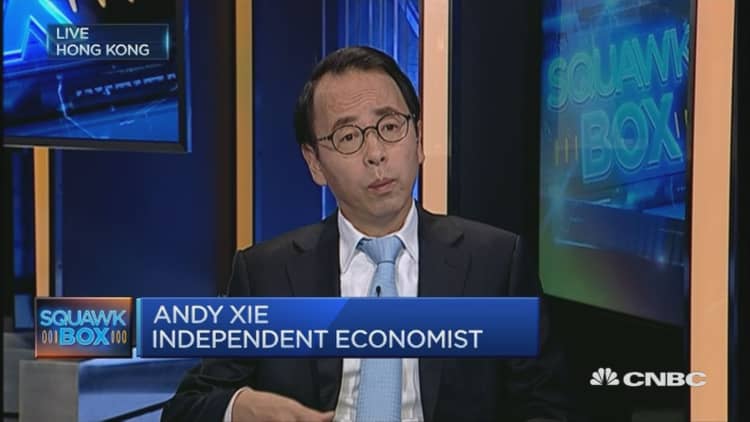
China posted positive manufacturing numbers this week, but there are more problems that need to be fixed in the system that is acknowledged, an economist said Tuesday.
"(You cannot just) focus on overcapacity and not focus on the government policy of subsidizing production or the financial system, that is, basically rolling over non-performing loans to make it look like they are still performing," said independent economist Andy Xie.
"China has been stretching the cycle and trying to roll over all the loans so nobody goes bankrupt," he told CNBC's Squawk Box.
The Chinese government, he said, needs to stop boosting industry by subsidizing investment as this will further contribute to over-capacity—which is in turn funded by households invested in the property bubble.
You have to let the economy adjust. That means the people who are supposed to go bankrupt...have to go bankrupt and the financial system has to recognize non-performing loans.Andy Xieindependent economist
"This is destroying household sector demand and you get into a vicious cycle. The industry sector can never become healthy," he said.
Xie's comments come on the back of the release of China Caixin's December manufacturing Purchasing Managers' Index (PMI) which marked its fastest rate of improvement in three years.
In December, the Caixin PMI reading came in at 51.9, up from November's 50.9. A reading above 50 indicates expansion, while a reading below signals contraction.
That compared with China's official manufacturing PMI, released Sunday, coming in at 51.4, down slightly from November's 51.7.
A reading above 50 indicates expansion in manufacturing activity, but the broader market does not seem to think all is well, said Xie.
"Even though we have a pick-up in production, the currency continues to come under depreciating pressure. This shows that the policy is not good for the economy in the long run," he said.

